
HVAC Systems Renesas
2.1.2.6 Variable air volume (VAV) systems. Variable air volume systems can vary the thermal loads according to zone ther-mal load variations. One advantage of these systems is that both the initial cost and the operating cost are low because the air volume requires simple control within 20% of the air outlets.
/cdn.vox-cdn.com/uploads/chorus_asset/file/19521285/air_handler.jpg)
Diagram Of Residential Hvac System Hvac Manuals Wiring Diagrams Faqs
Your furnace blower will pass air across the coil, and the air will cool as it comes in contact with the cold coil. The heat will transfer from the warm air to the refrigerant. Blower: The blower creates the current of air that passes over the evaporator coil. Filter: The filter is a porous device that you, the homeowner, can replace or clean.
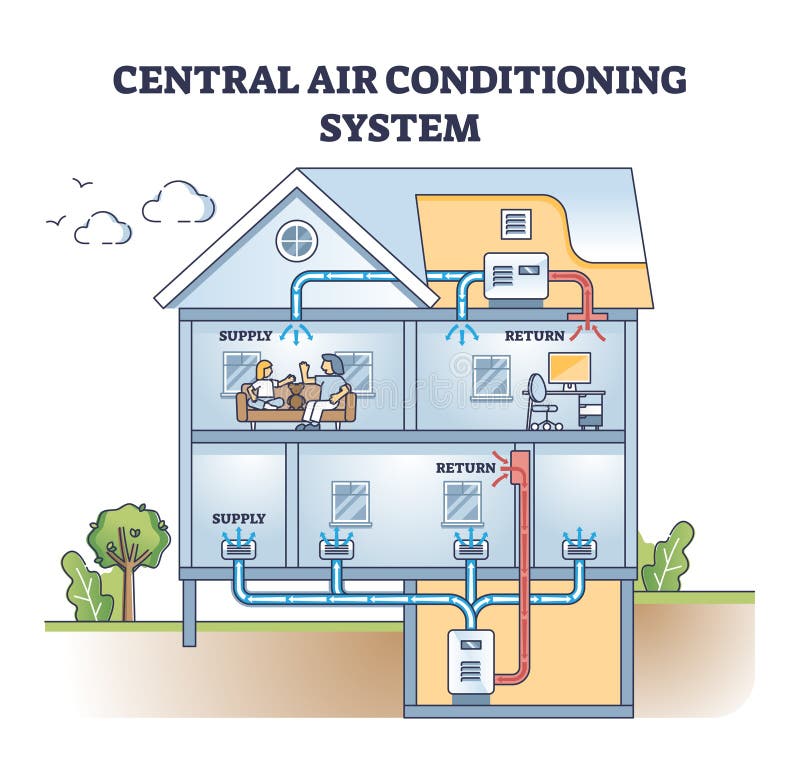
Central Air Conditioning System with AC Temperature Control Outline
In most cases, central air conditioning refers to a split-system air conditioner or a heat pump, both have an outdoor and indoor unit. The indoor and outdoor units work together to distribute cool air through a system of ducts in your home. Together, they are composed of five main parts: a thermostat, an outdoor unit (holds a fan, condenser, and condenser coil), an indoor unit (holds a fan and.
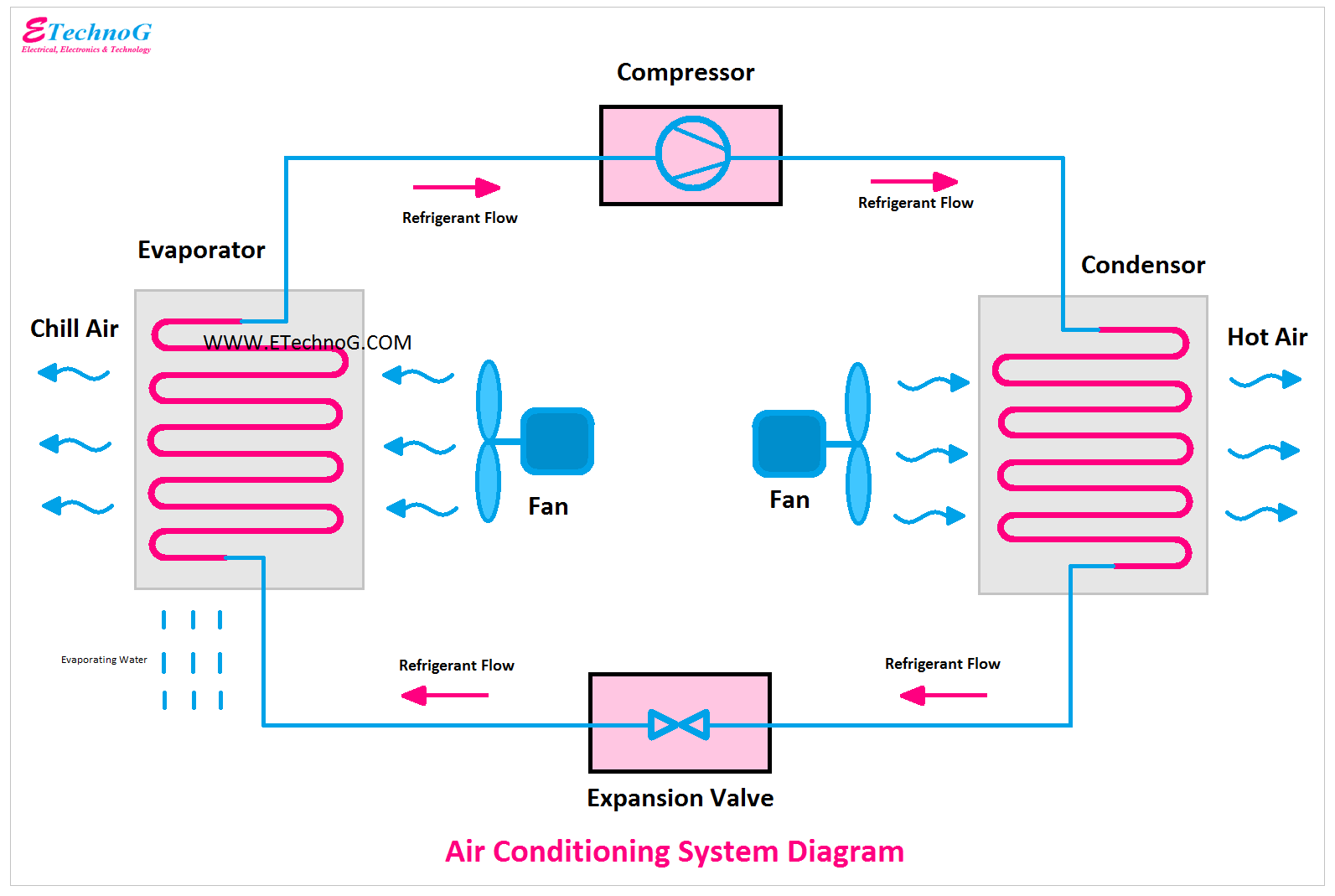
What is Air Conditioning System? Diagram, Applications ETechnoG
Central air conditioner unit is an energy moving or converted machines that are designed to cool or heat the entire house. It does not create heat or cool. It just removes heat from one area, where it is undesirable, to an area where it is less significant. Central air conditions has a centralize duct system.
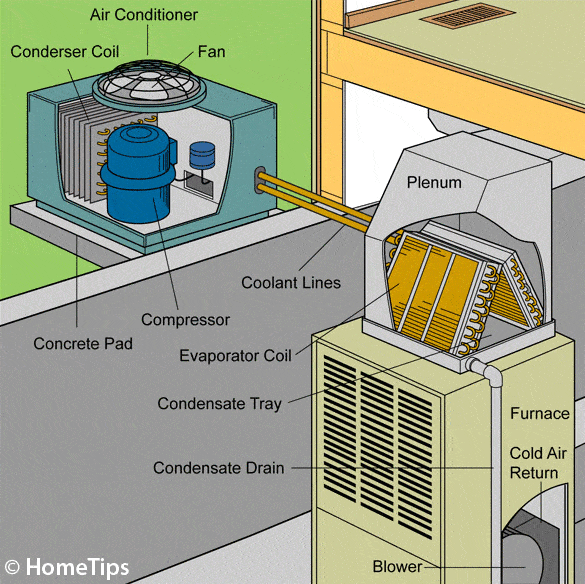
How a Central Air Conditioner Works
Central Air Conditioning System Diagram: A central air conditioning system consists of several components that work together to cool and circulate air throughout a space. Understanding the diagram and function of each component is essential for understanding how an AC system works. Thermostat: The thermostat is the control panel of the AC system.
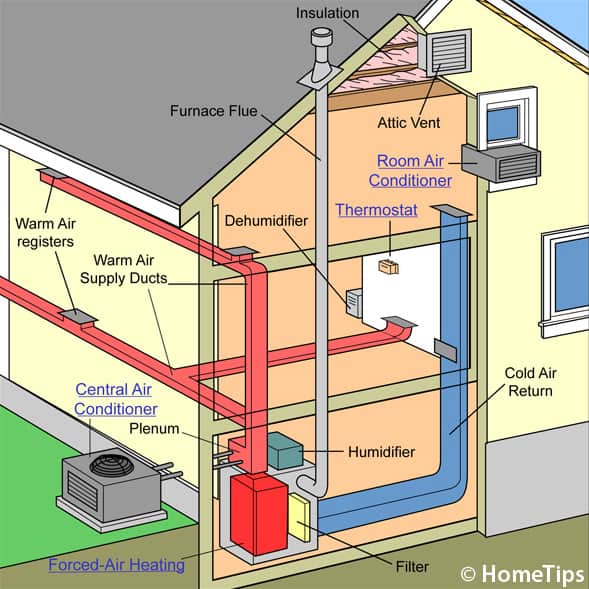
How a Central Air Conditioner Works HomeTips
HVAC system diagrams and schematics fall into three different categories: ladder, line, and installation diagrams. Here's how those break down. Ladder Diagrams.
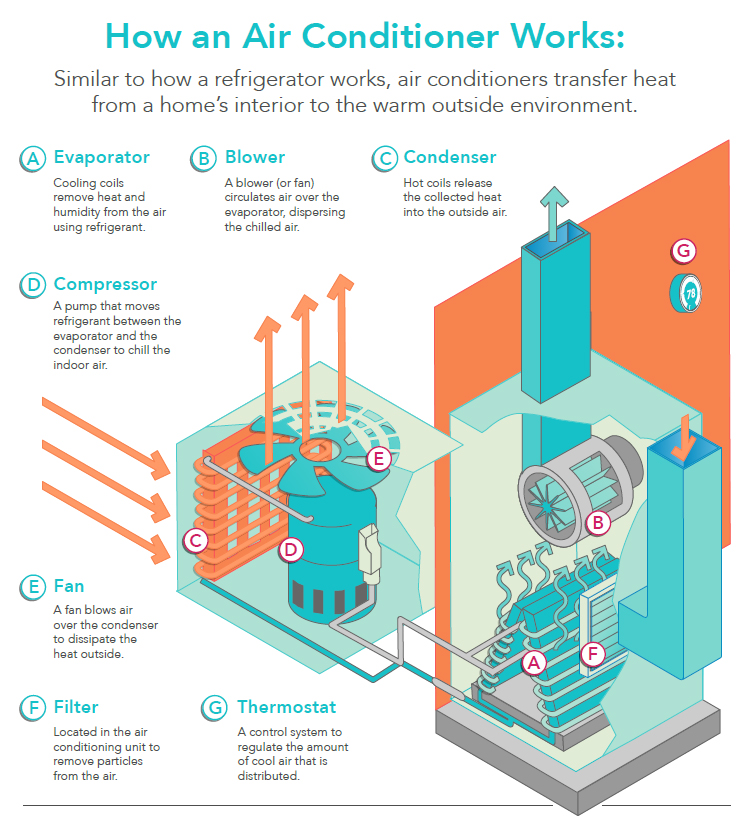
How air conditioners work How does Central Air work? (2023)
Contents show An air conditioner is an electrical device that removes heat and moisture from occupied spaces with the help of electricity. It is a method that can be utilized to produce a more comfortable environment, primarily for people and other animals.
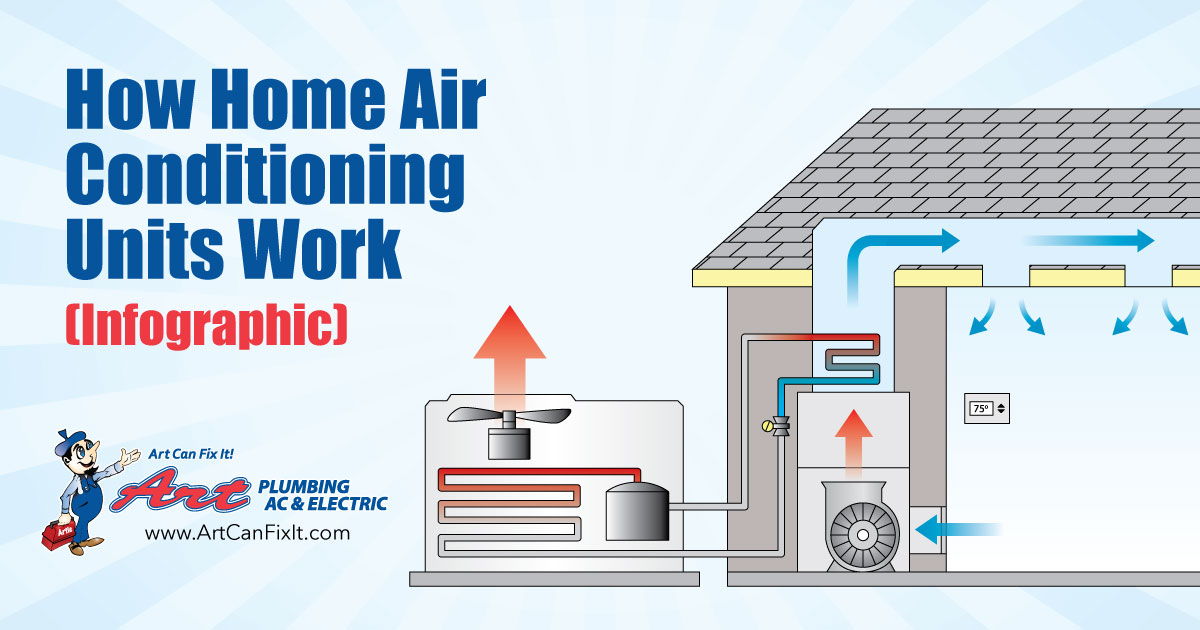
The Components Of Home Air Conditioning Units And How They Work
Central air conditioning is a common term used to describe most whole-home air conditioning systems. It replaces warm air with cool air that's been passed over cold coils, then pushes it into your living spaces. There are two different types of central air conditioners — split systems and packaged systems.

Best Central Air Conditioning Buying Guide Consumer Reports
In this video, we will discuss types of air conditioner, that is Central air conditioner and Unitary air conditioner. We also discuss Construction working of.

How Your Air Conditioner Works Polar Bear Heating & Cooling
It involves a furnace or heat pump that heats up air and circulates it throughout your home. Ventilation: This is all about maintaining good air quality. Ventilation systems remove stale indoor air, replacing it with fresh air from outside. They also help to control humidity levels and remove dust, allergens, and other airborne particles.
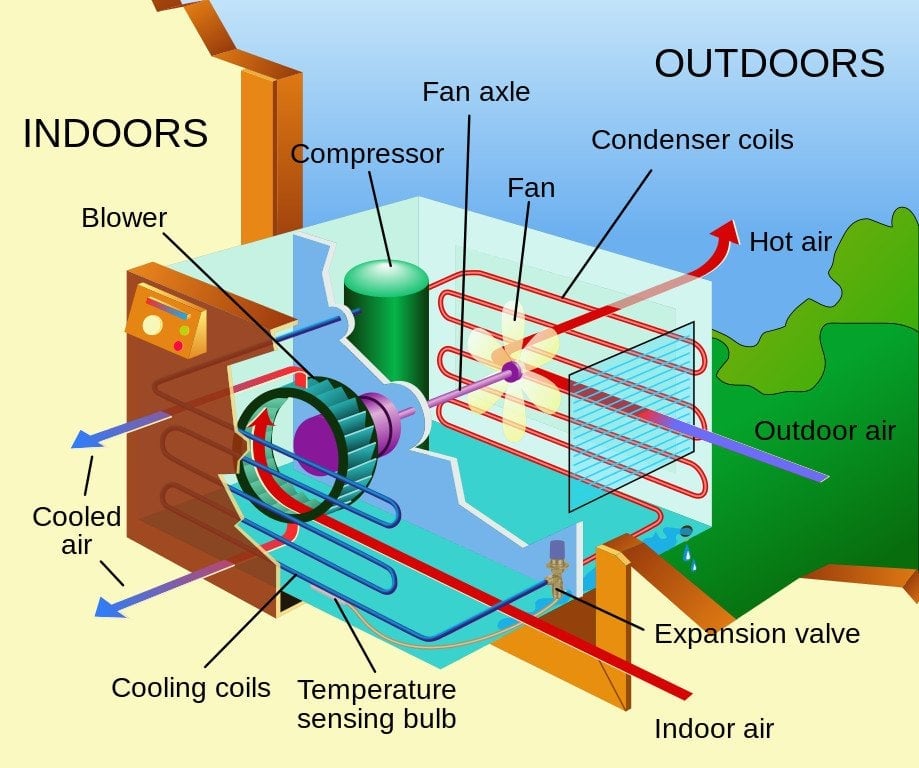
AC Working Principle How Does An Air Conditioner (AC) Work?
A central air conditioner cools air in one location, then uses the air handling capabilities of the furnace to distribute that cool air throughout the home. This distinguishes it from window or wall air conditioners or mini-split systems, all of which cool relatively small areas and rely on multiple units to cool the whole house.

How Central Air Conditioning Systems Work eRenovate
Central air conditioning is the main energy-consuming equipment in modern large-scale commercial buildings. Its energy consumption generally accounts for more than 60% of the electricity load.
:no_upscale()/cdn.vox-cdn.com/uploads/chorus_asset/file/19521222/ducts.jpg)
Central Air Conditioning Systems A Guide to Costs & Types This Old House
In this blog article, we'll take a look at the schematic diagram of a central air conditioning system and explain how each part functions to provide you with cool, comfortable air. First, let's start with the basics. A central air conditioning system uses four essential components: an indoor evaporator coil, a condenser, a compressor, and a.

How Do Air Conditioning Systems Work? LA Construction Heating and Air
Central air conditioning systems utilize two main components: an outdoor condenser and an indoor evaporator. The outdoor condenser is housed inside a metal cabinet with slats, called fins, along the sides to direct airflow. Condensers are typically located on a concrete pad beside your home, but may also be located on your roof.

Central Air Conditioning System Schematic Diagram
It became evident nowadays that modernization influences domestic and commercial HVAC industry, and thus high technological and energy-efficient central air conditioning systems are demanded. Therefore, the selection of proper type of central air conditioning system is a crucial target in the construction industry as improper selection can maximize initial and/or running costs of the system.
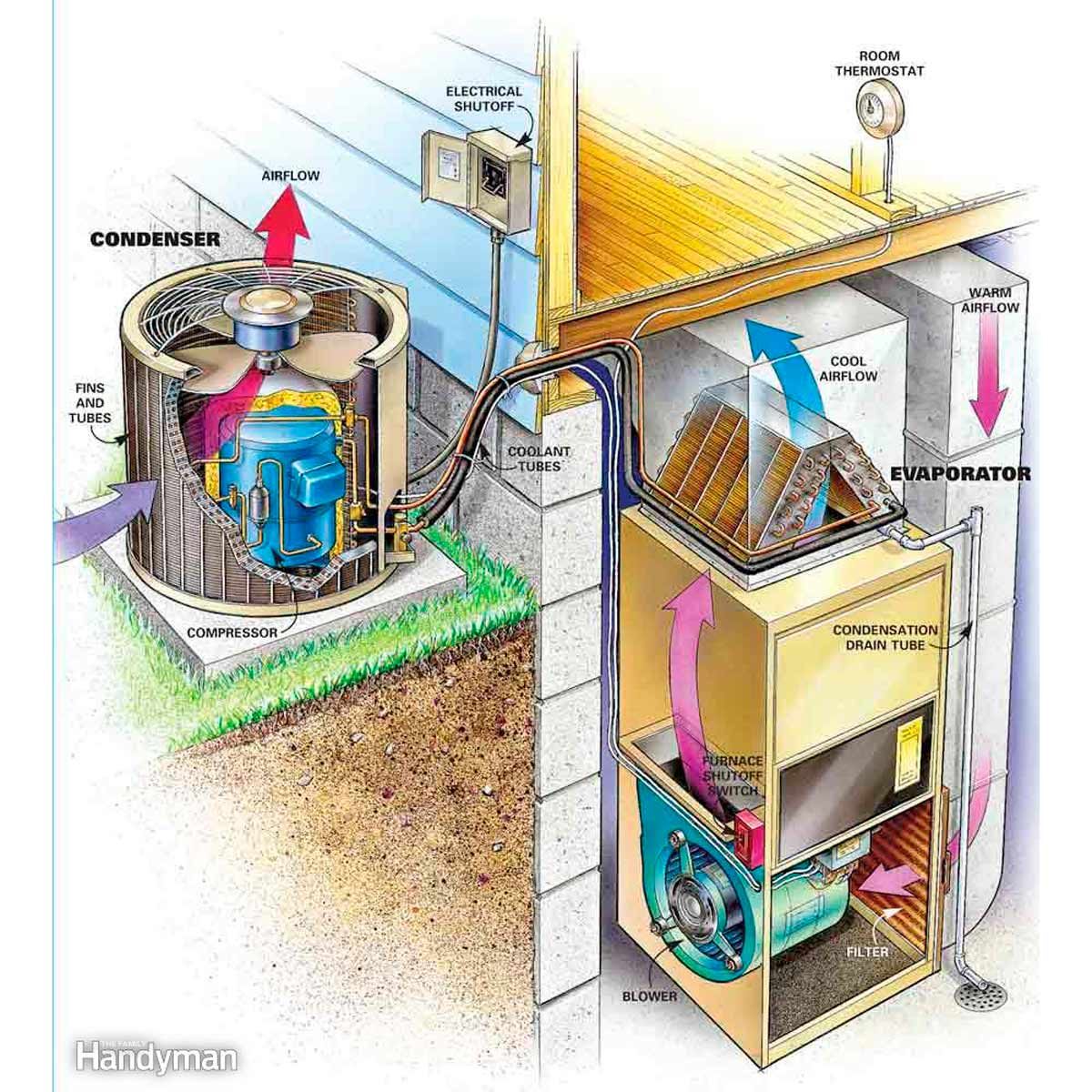
AC Condenser How to Clean an Air Conditioning Condenser
EVAPORATOR COIL. This is the piece of your air conditioning system that most people never see. It's contained in a metal box called a plenum, and sits on top of your furnace. If you have a horizontal furnace in an attic, the evaporator coil will sit on one end of the furnace instead of on top. The 'inside unit' or 'indoor coil' are.